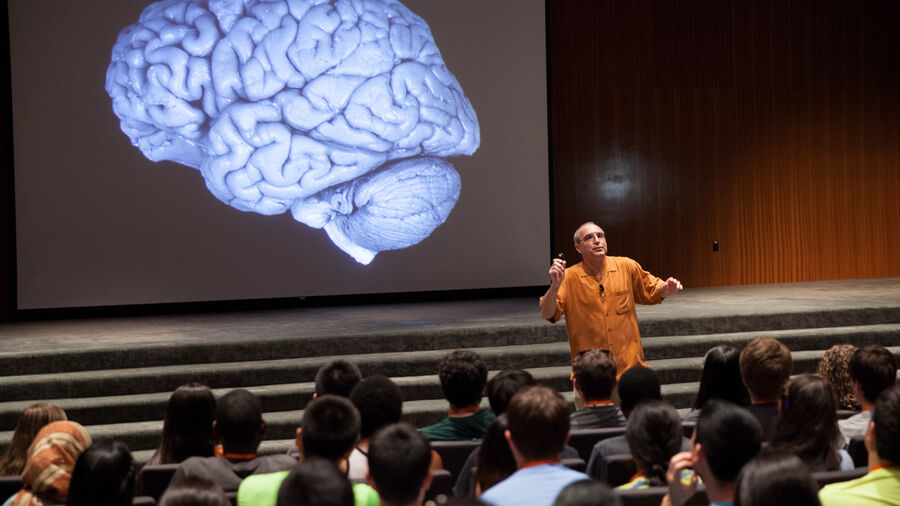

Neuroscience, the study of the nervous system, advances our understanding of human thought, emotion, and behavior.
Neuroscience is a diverse field that draws on expertise from numerous disciplines, including biology, chemistry, computer science, mathematics, physics, and psychology. The Bachelor of Science and Bachelor of Science and Arts in Neuroscience degree at The University of Texas at Austin provides students with rigorous, multidisciplinary training that can serve as a foundation for a career in this growing field.
The Bachelor of Science and Arts degree allows students to explore a range of neuroscience topics and build a cross-disciplinary framework in another field by completing a minor or certificate program.
The Bachelor of Science degree enhances neuroscience lecture content with hands-on laboratory experiences. The program emphasizes the acquisition of quantitative and statistical competence and provides meaningful hands-on laboratory experiences with expert faculty and cutting-edge techniques, including intracellular electrophysiological recording, functional magnetic resonance imaging (fMRI), live cell imaging using two-photon microscopy, human psychophysics, and molecular genetics.
An additional Bachelor of Science program, Neuroscience Scholars, is available to students intending to pursue graduate study in neuroscience by application after successful completion of introductory neuroscience coursework. For accepted students, this pathway emphasizes neuroscience laboratory experiences and an additional three-course specialization in one of six areas: biology, chemistry, computer science, mathematics, physics, or psychology.
Prospective University of Texas at Austin students should visit UT Admissions to learn about the application process and how to declare a major.
Step 1: Internal transfer students must apply to the College of Natural Sciences prior to completing 60 hours or four long semesters at UT. Applications are due to the College of Natural Sciences in the spring. Learn more about the college's internal transfer requirements
Step 2: Once accepted into the College of Natural Sciences, all students will start as entry-level neuroscience majors until they successfully complete the entry-level requirements.
For information on required courses, students can view the neuroscience degree plans on the department website:
Neuroscience majors may specialize in one of six areas: biology, chemistry, computer science, mathematics, physics, or psychology.
Neuroscience is a diverse field that benefits from the participation of people with a variety of interests and backgrounds. Neuroscientists are chemists, biologists, mathematicians, psychologists, physicists and computer scientists. Some neuroscientists enjoy getting their hands dirty conducting experiments in the lab, while others use computer simulations. Students of neuroscience are interested in the brain and behavior; they strive to understand complex systems using empirical methods; they enjoy working with quantitative data; and they are self-motivated critical thinkers.
Students will acquire the ability to analyze and interpret data; design and execute experiments; perform cutting-edge laboratory techniques; write with clarity; and apply quantitative, chemical, biological and psychological methods toward understanding the nervous system and behavior.